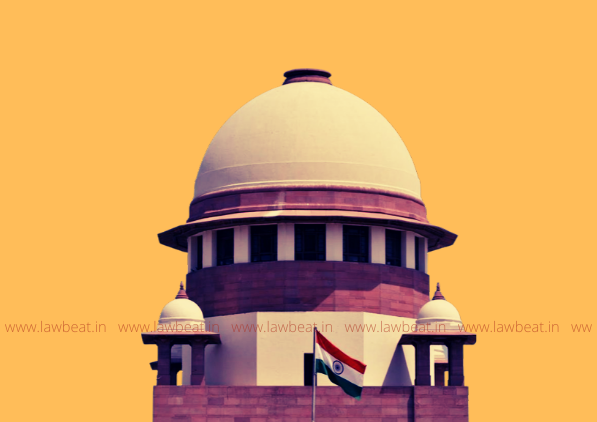Section 12(2)(c) Is Only An Enabling Provision Which Cannot Be Implemented Without Satisfying The Triple Test; Reservation Beyond 50% Held Impermissible: Supreme Court

The Top Court in its decision today, held that, a State cannot confer reservation without conducting proper enquiry to that effect. Reliance was placed on the judgment of the Constitution Bench in KK Murthy v. Union of India.
Full Bench of Justice A.M. Khanwilkar, Justice Indu Malhotra and Justice Ajay Rastogi, while allowing the given writ petitions in part, held, “The challenge to the validity of Section 12(2)(c) of the 1961 Act is negatived. Instead, that provision is being read down to mean that reservation in favour of OBCs in the concerned local bodies can be notified to the extent that it does not exceed aggregate 50% of the total seats reserved in the favour of SCs/STs/OBCs taken together. In other words, the expression ‘shall be’ preceding 27% occurring in Section 12(2)(c), be construed as ‘may be’ including to mean that reservation for OBCs may be up to 27% but subject to the out limit of 50%.” On such interpretation, Section 12(2)(c) can be saved and at the same time, the law declared by the Constitution Bench can be effectuated in its letter and spirit.
A batch of petitions were filed challenging Constitutionality of Section 12(2)(c) Maharashtra Zila Parishads and Panchayat Samitis Act, 1961 ("1961 Act") and validity of notifications dated 27.7.2018 and 14.2.2020, issued by the Election Commission, Maharashtra providing reservation exceeding 50% in respect of Zila Parishads and Panchayat Samitis of districts Washim, Akola, Nagpur and Bhandara.
The petitioners, relying on K.Krishna Murthy v. Union of India, (2010) 7 SCC 202, contends that reservation beyond 50% is impermissible whereas the respondent State submit that the same decision recognizes reservation for OBCs, to the extent permissible under Section 12 of the 1961 Act.
Key Observations
- Reservation for OBCs is only a ‘statutory’ dispensation to be provided by the State legislations unlike ‘Constitutional’ reservation regarding SC/STs which is linked to the proportion of population.
- State legislations providing reservation in respect of OBCs, must ensure that in no case the aggregate vertical reservation in respect of SC/ST/OBCs cumulatively, should exceed 50% of total seats.
- In case, Constitutional reservation provided for SCs and STs were to consume the entire 50% seats, the question of providing further reservation to OBCs would not arise at all.
- State legislations cannot simply provide uniform and rigid quantum of reservation for OBCs in the local bodies, across the State, without a proper enquiry into the nature and implications of backwardness by an independent Commission.
- The triple test required to be complied by the State before reserving seats in the local bodies for OBCs has not been done so far, namely, (1) to set up a dedicated Commission to conduct an empirical inquiry into nature & implication of the backwardness in local bodies (2) specify the proportion of reservation required in light of the recommendations so made (3) ensure reservation to not exceed 50% of the total seats reserved in favour of SCs/STs and OBCs taken together.
- As for Section 12(2)(c) added through the 1994 Amendment Act, the plain language may indicate a rigid compliance of 27% reservation to OBCs, however, in light of the decision in K. Krishna Murthy, such provision cannot be assumed to apply uniformly to all local bodies.
- Section 12(2)(c) is only an enabling provision and would become functional and operational only upon fulfilling triple test as specified by the Constitution Bench of this Court. That is the sine qua non or the quintessence for exercise of power to reserve seats for OBCs in the local bodies.
- Power to reserve seats for OBCs springs from Section 12(2)(c) of the 1961 Act, but that is hedged by conditions and limitations specified by the Constitution Bench of the Apex Court and would not get ignited until the same is adhered to.
- The impugned notifications issued by the State Election Commission reserving seats for OBCs in the concerned local bodies, suffer from the vice of foundational jurisdictional error, therefore void and without any authority of law.
Case Title: Vikas Kishanrao Gawali v. State of Maharashtra | WP (Civil) No. 980 of 2019
Law Point/ Statute Involved: Section 12(2)(c) Maharashtra Zila Parishads and Panchayat Samitis Act, 1961 & Article 14, Article 16, Article 243 D & Article 243 T of the Constitution of India,1950
